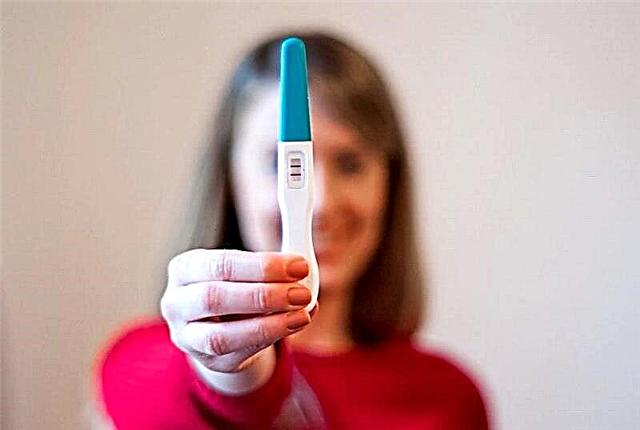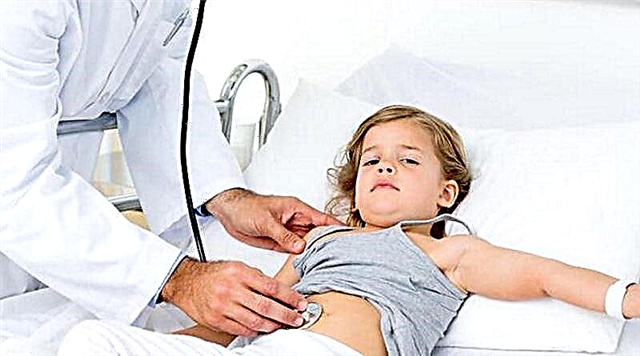
The inflammatory process in the larynx is manifested by a characteristic cough, which causes the child severe discomfort and very worries the parents. When it appears, it is important to know how to help the baby during an attack and what drugs are used to treat laryngitis.

Symptoms
The larynx can be affected by viruses, hypothermia, loud screaming, bacteria, allergens, tobacco smoke, and other harmful factors. The mucous membrane of the larynx swells and turns red, and the vocal cords may thicken or stop closing.
As a result of such changes, the child begins to complain about:
- Sore throat.
- Discomfort when swallowing.
- Hoarseness or loss of voice.
- Sore throat.
- Headache.
- Slight rise in temperature.

But the main and most unpleasant symptom that causes special problems for children with laryngitis is a specific dry cough. Because of the similarity to the barking of a dog, a similar cough was called barking. Only 2-5 days after the onset of the disease, the cough begins to moisturize and becomes productive.
How to treat?
In the early days of laryngitis, treatment is aimed at moisturizing the laryngitis cough. To do this, use plenty of drinking, humidification, inhalation, gargling and other local treatment for the throat. The cough itself is often not eliminated, but only trying to make it productive. Further, for better sputum discharge, the doctor prescribes expectorants and mucolytics.

How to treat: a review of drugs
With dry laryngitis cough, the child is often prescribed nebulizer inhalations with saline and borjomi, as well as steam inhalations with herbal decoctions or sea salt. Inhalation through a nebulizer with Pulmicort or Budesonide is also effective. These drugs reduce inflammation and widen the larynx.
If the cough is unproductive and intrusive, the child may be prescribed antitussives, for example, Libeksin, Codelac or Sinekod. However, you should know that only a doctor should prescribe such drugs, since their incorrect use can worsen the baby's condition.
In many cases of laryngitis, the child will be prescribed an antihistamine such as Claritin, Zodak, or Cetrin. Such drugs reduce swelling and soothe the child, but, like drugs with a central effect on the cough center, they must be prescribed by a specialist.
To eliminate tickling, itching and sore throat, it is recommended to gargle it. For medicinal rinses, you can simply use warm water, to which salt and soda are added, but more often the procedure is carried out with decoctions of herbs (chamomile, calamus, sage, anise seeds) and antiseptic solutions.
To eliminate inflammation and dryness, medications are often used in the form of sprays and aerosols. Babies are prescribed Ingalipt, Angilex and Miramistin. In addition, pills that the child must dissolve, for example, Lizobact or Faringosept, are also suitable for topical use.
As soon as the child begins to cough up phlegm, he is prescribed expectorants and drugs that reduce the viscosity of mucus in the respiratory tract. The list of such funds is quite large. More commonly, herbal medicines are used, such as Prospan, Gedelix, Licorice syrup, Herbion syrup or Dr. Mom. Also, drugs such as ACC, Ambroxol, Bromhexine and the like are often prescribed.
How to eliminate a coughing fit?
Laryngitis cough in children often appears in the form of seizures. They frighten parents very much, especially if they occur at night, as they manifest themselves not only with dry cough, but also with severe anxiety of the child, as well as respiratory failure.
If such an attack has begun, parents need to:
- Try to distract and calm your baby.
- Give a warm alkaline liquid to drink, such as Borjomi or milk with soda.
- Dip your child's feet into warm water by taking a foot bath.
- Provide access to fresh air, for example, go to the balcony or open a window.

Features of the treatment of children under one year old
The smaller the baby, the more serious his laryngitis can occur, so you can't hesitate to see a doctor. In infancy, the disease manifests itself as lethargy, moodiness, severe coughing, anxiety, whistling and wheezing during crying, and bluish coloration of the nasolabial triangle. The disease in children under one year old is dangerous due to the frequent development of stenosis, therefore, with a nightly attack of coughing, the parents of the baby must call an ambulance.

What can’t be done?
To prevent the child's condition with laryngitis cough from getting worse, parents should not:
- Give your child antitussives, antibiotics, or antihistamines on their own. Such drugs are allowed to be given to the baby only after consulting a pediatrician.
- Soar your child's feet or give him a hot bath.
- Overheating the throat (this can increase the swelling).

Tips
- During the treatment of laryngitis cough, the child should protect the throat. To do this, you should exclude the inhalation of cold air and harmful vapors, do not strain the vocal cords with a cry. Make sure your child breathes through his nose and talks less.
- The air in the room where the sick child is staying should be humidified. The best solution is to use a humidifier. It is also necessary to ventilate the room and do wet cleaning in it more often.
- To moisturize laryngitis cough, it is important to give your baby more drink. Offer your child non-acidic fruit drink, compote, milk with honey, warm gai, still mineral water.
- Also monitor the temperature of the food a child with laryngitis eats. Food should not irritate the throat, so don't feed your crumbs too hot or very cold food.
After watching the next program of Dr. Komarovsky, you will learn more about cough medicines.



